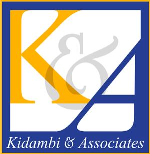Once again, on April 3rd, the USCIS will begin accepting petitions against the FY 2018 H-1B CAP[1]. For some strange reason, USCIS suspended premium processing[2] for H-1B petitions as of April 3rd. This means, none of the H-1B CAP cases can be expedited, or adjudicated within fifteen-days. The wait adds to the uncertainty and dilemma of high skilled workers entering the country to work for U.S. employers. Following, a “random selection” process, USCIS will select 65,000 petitions for the regular CAP and an additional 20,000 towards the Advanced Degree CAP. Last year, over 220,000 petitions were filed against the CAP, leaving employers with a one in three chance of having their petition picked for processing! This makes no sense if you are an employer trying to bring the best talent to work for you. The media, on both sides has a field day with this information and tends to either support adding numbers to the CAP, or scrapping the program altogether!
Whatever one may think of the H-1B program, it is a fact that it allows employers to legally bring highly skilled workers to the U.S. H-1B employees have to be paid the “prevailing wage” – set by the U.S. Department of Labor and approved by the United States Citizenship and Immigration Services. There is no reason to reject employees capable of working for legitimate U.S. workers who attest to “non-displacement” and “recruitment” of U.S. workers.[3] In fact, prior to employing someone in H-1B status, the employer is required to provide notice of such employment to other U.S. workers within the organization and the work site. The U.S. employer also cannot use the H-1B program to employ individuals where there is a strike or lockout. Moreover, where unionized workers exist, the unions must be provided with notice of H-1B employment. The H-1B employer can be assessed a civil money penalty up to $35,000 (and can be subject to a three-year debarment) for any willful violation of its attestation and notice obligations. The USCIS also collects a Fraud Prevention and Detection Fee of $500.00 per petition to ensure the integrity of the program is maintained. Even after the Petition is approved, the USCIS sends out “site inspectors” to employer locations to verify the employee is employed as originally intended by the underlying petition.
H-1B employees work long hours (medical residents) and/or take positions that require frequent travel (technology workers). Some positions offer contracts that are no longer than 6 months. Each change in location requires the employer notify the USCIS by filing a separate amendment with filing fees. This process takes months to be approved. Processing times for H-1B extensions are now close to 365 days! This leaves several H-1B workers and their spouses without the means to extend their Driver’s License (since validity is tied to the approval notice).
Even when the Employee has to travel abroad, there is no guarantee they are likely to return as scheduled. Even before Consulates were directed to vet applicants more rigorously, U.S. Consulates have had the authority to re-evaluate an approved H-1B petition. H-1B workers who have worked in the U.S. for the same employer for several years are routinely stuck abroad due to Consular “second guessing” of a USCIS approval.
In addition to paying their income taxes, H-1B employees pay into Medicare and the social security system. However, they derive no benefit from it. In other words, H-1B workers are both taxed and unrepresented! Even when the H-1B worker finally applies to become a permanent resident, the waiting period for applicants from certain countries is between 12-15 years, or longer!
The H-1B worker is exploited by a system that has not changed with the times and vilified for no fault of their own. It is time this broken system is fixed, both in the interest of the U.S. employer and the immigrant alike!
[1] Not based either on scientific fact, or economic exigency!
[2] Allows the Employer to seek adjudication of the petition in fifteen days by paying an additional fee of $1,225.00
[3] 20 CFR sections 655.738 and 655.739
